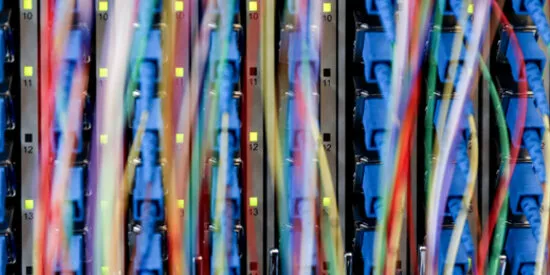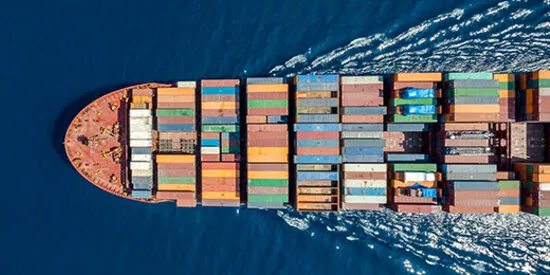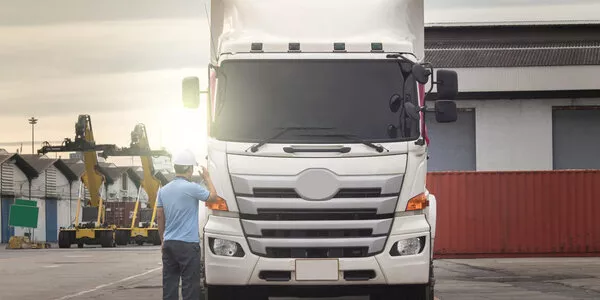
Turning vision into reality for a sustainable EV solutions pioneer
From gigafactories to green ammonia, bankable new business models are key to accelerating the energy transition.
Creative business models and innovative financing structures will be crucial for channelling investment into the technology and infrastructure required for the global energy transition.
Perhaps no one knows that better than Lei Zhang, Executive Chairman of AESC, a global leader in developing and manufacturing high-performance batteries that support the electric mobility industry and green-energy transition worldwide.
Zhang points to AESC’s gigafactory project in France as an example of how thinking outside of the box can help drive the energy transition.
“Both sides, all the players involved, created lots of innovative solutions, and really made this project a very attractive investment opportunity,” he says.
The gigafactory is the first of its kind in France to achieve financial close. It will initially be used to supply Renault with batteries for electric vehicles, supporting the national goal of building up the battery industry as a key part of plans to “reindustrialise” France.
The deal—for which Societe Generale acted as Sole Debt Financial Adviser, Mandated Lead Arranger and Hedge Coordinator—will allow AESC to strengthen its foothold in the European market and bring its operations closer to customers.
A clean-energy innovator
Today, AESC is a clean-energy champion and one of the first companies to produce advanced lithium-ion batteries for EVs at scale. AESC leverages innovative net-zero system solutions, including renewable-energy generation, carbon reduction through state-of-the-art energy management systems and battery recycling to accelerate carbon neutrality across the whole battery value chain.
AESC’s gigafactory in France, like its projects in markets around the world, represents a vision to accelerate the global transition to carbon neutral transportation. The AESC French Project Financing received two of the most prestigious awards in the market: 2023 Europe Industrial Deal of the Year by PFI Magazine, and 2023 Europe Gigafactory Deal of the Year by IJGlobal Magazine. These awards highlight the trailblazing and trendsetting nature of both the project and its financing.
Comprehensive ecosystems are critical
An estimated $100 trillion of finance will be needed to achieve net zero over the next three decades.
“The banking sector is just so critical for this transition,” says Zhang. “I see so many opportunities ... banks should be excited about the future of this industry.”
Banks alone cannot drive the shift. Avoiding the worst impacts of climate change will require collaboration and cooperation across the entire industrial ecosystem. Scientists have warned that the Paris Agreement target of limiting emissions to keep average global temperatures to within 1.5°C above pre-industrial levels will slip out of reach unless ambition and implementation is stepped up rapidly.
“With such a short time window for accelerating this transition, banks, technology companies and also the government should be working together to redefine the business model, to de-risk and to accelerate,” says Zhang.
Financing innovation in the energy sector
Societe Generale is working to do its part. The bank has supported several new and emerging renewable-energy companies across the world with “first-of-a-kind” financing structures.
In Japan, Societe Generale arranged financing to help Shizen Energy build a solar project that will supply renewable energy to Microsoft. It is the first project financing of its kind under Japan’s new energy pricing regime, and it was the first time Microsoft—which operates data centres in Japan and aims to source 100% of its energy from renewables by 2025—signed a PPA to support a new Japanese power project.
The bank also acted as one of the mandated lead arrangers for the Indian renewable-energy company ReNew’s project that will combine solar and wind farms—a first in the country—with affordable energy storage to deliver renewable power around the clock. Societe Generale and ReNew recently signed a MoU to broaden collaboration on energy transition projects.
“Landmark financings like these are a hallmark of Societe Generale in Asia Pacific and make a real contribution to supporting the innovative business models that are needed to accelerate the energy transition,” says Stephanie Clement de Givry, Head of Global Banking & Advisory at Societe Generale Asia Pacific.
“We continue to work with our clients to deliver creative solutions that will help to turn their sustainability ambitions into meaningful climate action.”
On 28 May 2024, Societe Generale and Envision announced the signing of a Memorandum of Understanding (MOU) to advance the development of green technologies, and optimise the carbon footprint of businesses, as part of the global energy transition.




